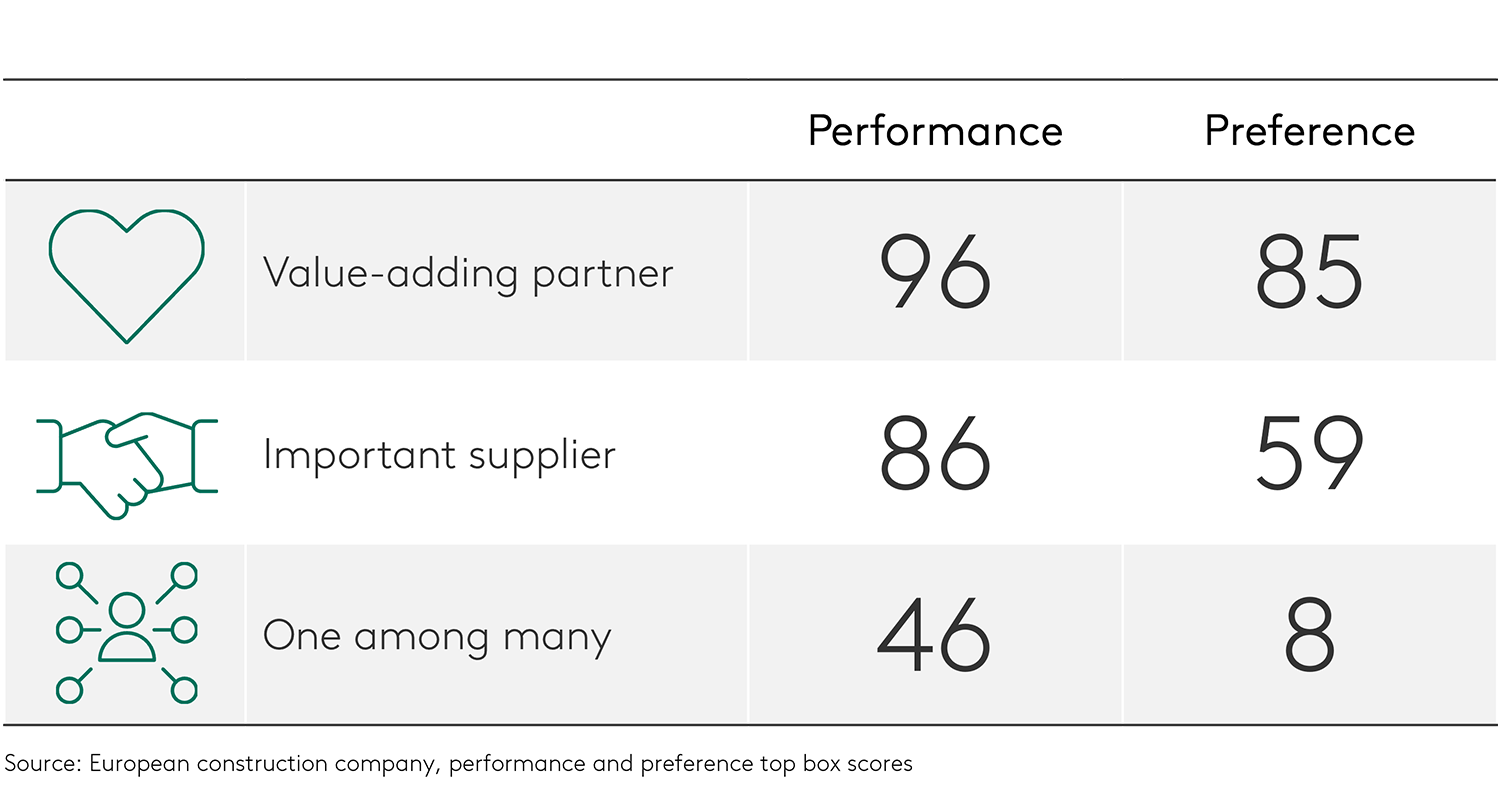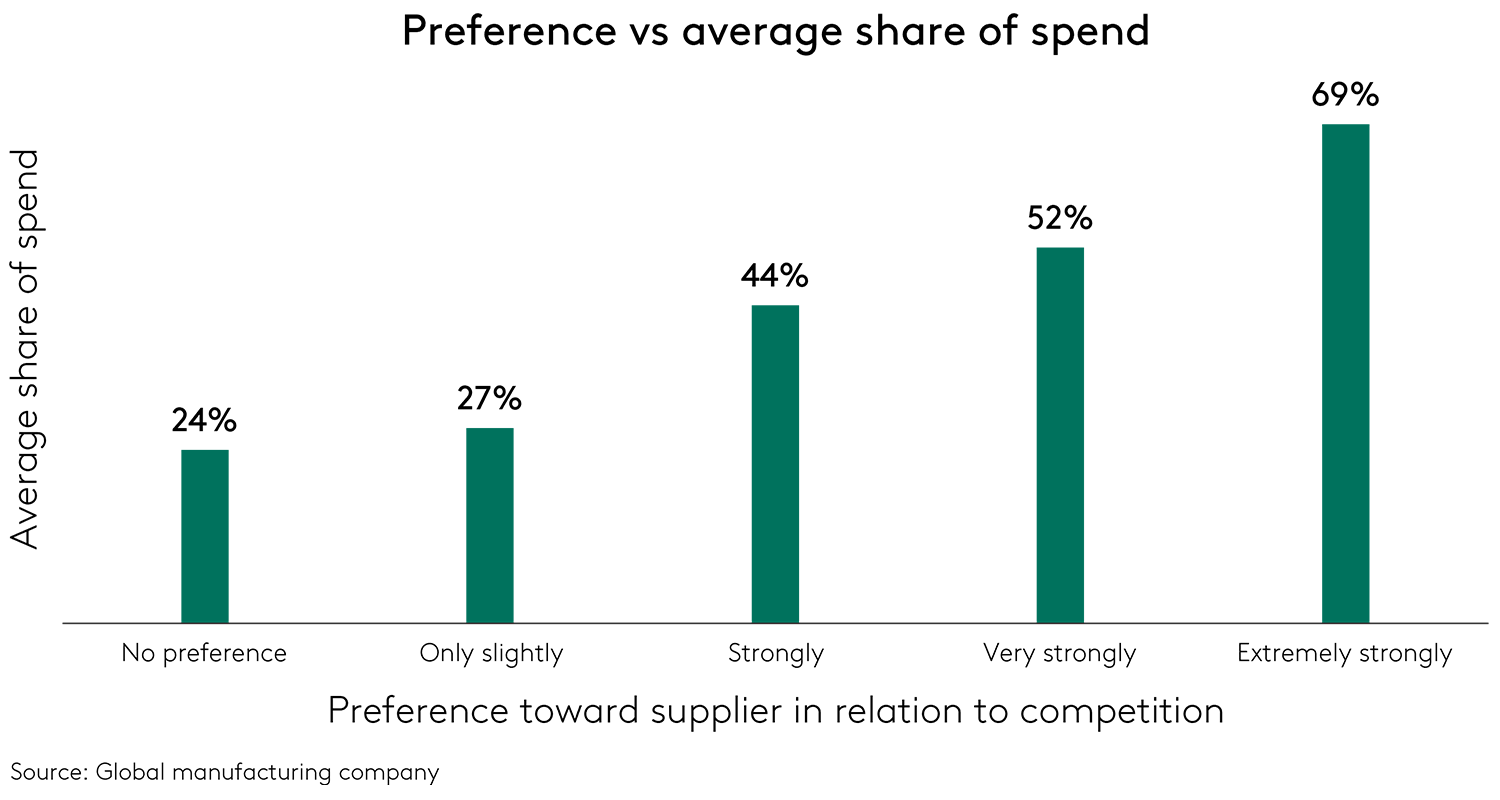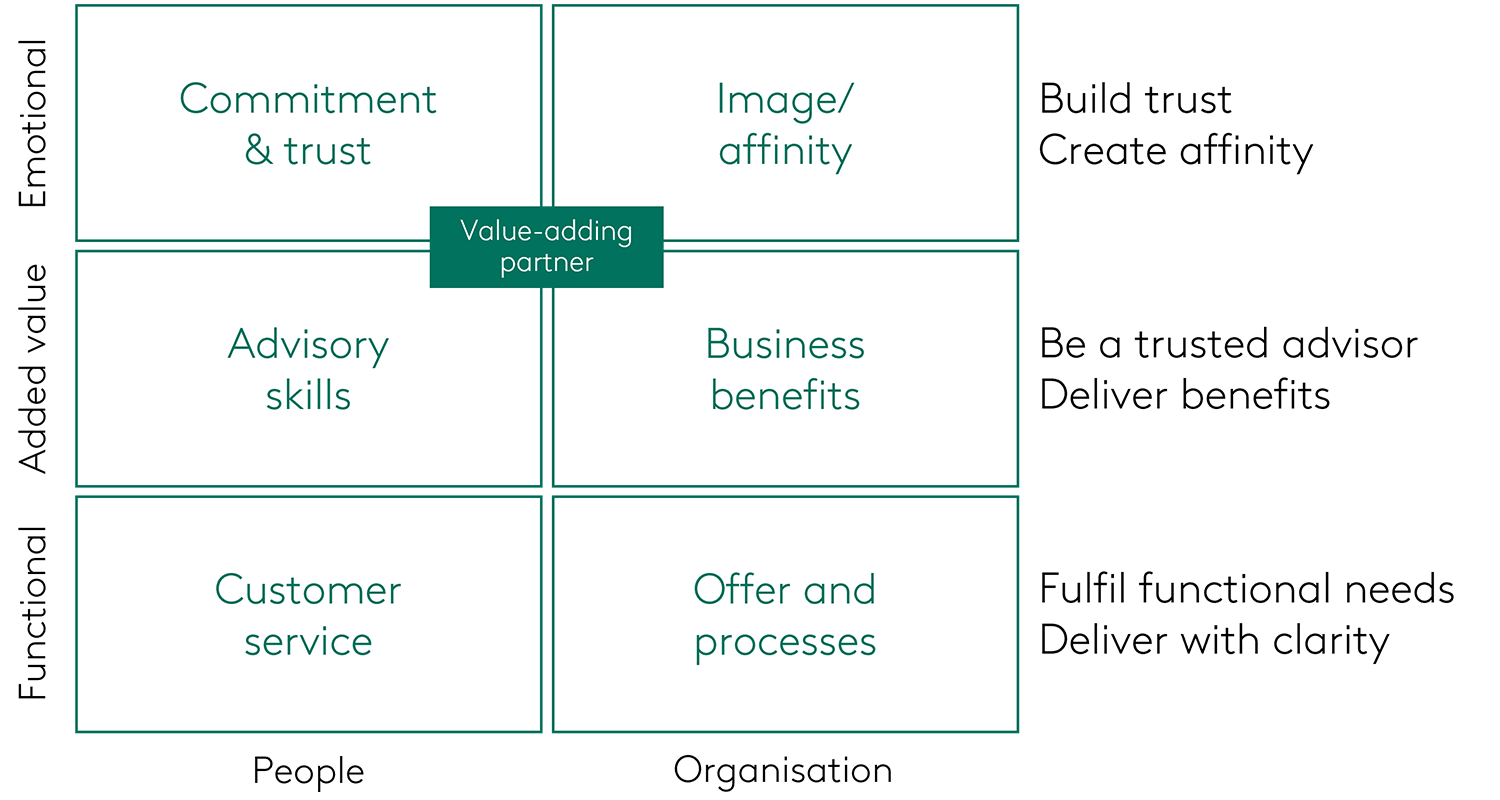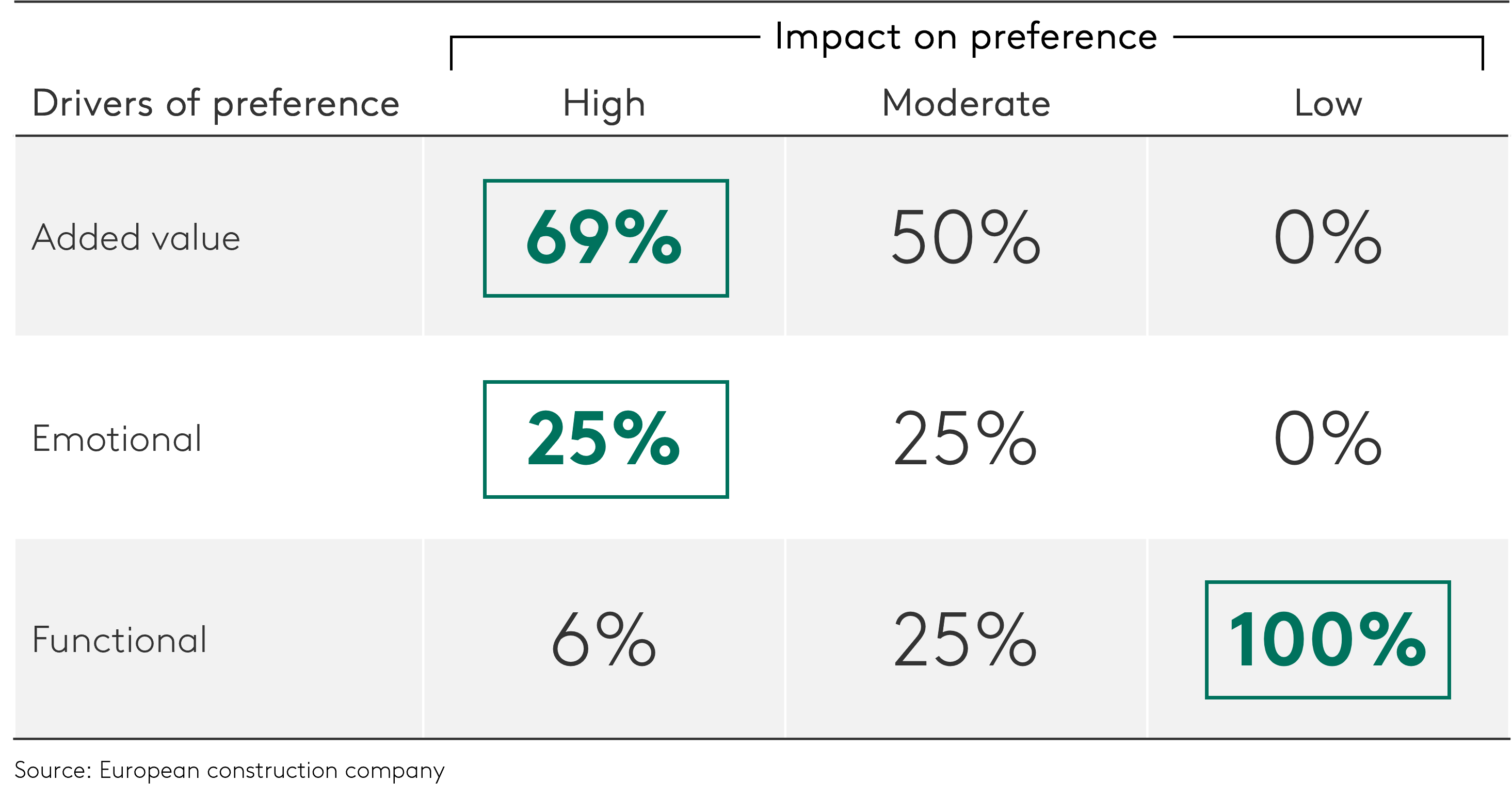Delivering a functional customer experience alone isn’t enough for B2B companies to thrive in today’s competitive and economically uncertain landscape. Many companies have seen their functional satisfaction scores increase year on year but still experienced a decrease in their share of spend. Often, this is due to a lack of differentiation – they haven’t managed to stand out and create a strong enough preference compared to the competition.
New Kantar data shows that when brands go beyond offering a purely functional experience, to delivering a Meaningfully Different one, they reduce churn rates by 50%. When B2B companies embrace differentiation to become a value-adding partner to their customers, they increase perceptions of their performance and crucially, the preference towards them in relation to the competition. This leads to increased loyalty, share of spend, and customer retention.
It all begins with brand strategy
In a crowded marketplace, it can be challenging to differentiate a business offer. As we’ve shown, this journey should begin with brand strategy. Articulating what is different about your brand and using that to inform all aspects of your customer experience will help create more memorable and distinctive experiences that not only lead to positive commercial outcomes like churn reduction - but connect your customer experience to your brand identity and supercharge growth.
Here’s an example of a European construction company that successfully built its brand strategy based on how it wanted to differentiate and the true value of its business offer. The result was a partnering strategy that set them apart through value-adding capabilities such as better collaboration – connecting the right skills and people with the right experiences and values in the organisation. A follow-up customer relationship study clearly showed that the partnering strategy works. Customers who view the construction company as a value-adding partner are happier with their performance than customers who view them as an important supplier or a supplier among many. Importantly, these customers have a much stronger preference for the company compared to other construction companies.
A value-adding strategy clearly impacts preference

To affinity and beyond
Increasing brand affinity is vital to becoming a value-adding partner. Aligning brand promise and purpose with customer experience in B2B helps companies to stand out from the competition and drive higher preference. In turn, this leads to a higher share of spend. This example of a global manufacturing company demonstrates the correlation between strong preference and an increased stated share of spend, a pattern we often see in B2B studies at Kantar.
Preference drives share of spend

So, how can you improve your preference ratings and achieve a higher share of spend?
Identify the drivers of preference
Kantar’s B2B data shows that it’s not enough to deliver on the basics – there are many hygiene factors that customers take for granted, such as delivery and fulfilling functional needs. These factors are easily copied by other suppliers, and many offer the same level of customer satisfaction. Hygiene factors are incredibly important - failure to deliver on these can cause massive dissatisfaction, but over-investment in these areas rarely pays off.
In B2B, customers look for deeper, long-term partnerships, not a one-time transaction. To differentiate and create preference, it’s important to go the extra mile to add value and create strong emotional bonds.
A framework for success
Our B2B framework shows that strong relationships depend on value-adding capabilities, such as expert guidance through advisory skills and forging emotional bonds through a commitment to helping and becoming trustworthy. This is a responsibility for both employees and the organisation. Companies that capitalise on the opportunities in these top layers will successfully differentiate and stand out from the crowd.
Kantar’s B2B framework

A recent Kantar study showed a global manufacturing company how to do just that. Satisfaction attributes were correlated with preference and divided into three equally sized groups. In the high-impact group, 94% were related to the skills from the top two layers of our framework, while functional attributes dominated the low-impact group.
To build preference, look beyond functionality

The high-impact value-adding factors touched on various aspects of the company’s delivery that created differentiation, for example, productivity improvements, support in reaching sustainability objectives, mobilisation of expertise and collaboration on innovation leading to increased sales for both our client and their end client. This, combined with the advisory skills which build trust and create affinity, increased preference. We see a similar pattern of preference drivers across most B2B industries.
Leadership at all levels
To get to the root of problematic preference scores and define next steps, you need to undertake a thorough root cause analysis using a system like our B2B framework. The performance assessment will likely raise strategic questions that deserve a full review. Is the outcome expected? What are the main challenges in becoming a strategic partner for customers? Should you revise your customer strategy? How should you focus on change management?
Identifying these issues will help your business go one step beyond to become a value-adding partner to your customers. It pays off in terms of higher differentiation, preference and ultimately, sales. To manage such a transformation, it’s not enough to deliver on functional aspects –you need to add value and build strong emotional bonds. This is a responsibility for employees (competence, attitudes, and behaviour) as well as for the organisation (offers, processes and brand identity) and calls for leadership on all levels.
It may be ‘business-to-business’ but it’s vital not to forget that people are at the heart of the matter. Get in touch to find out more about how Kantar helps businesses become value-adding partners.



